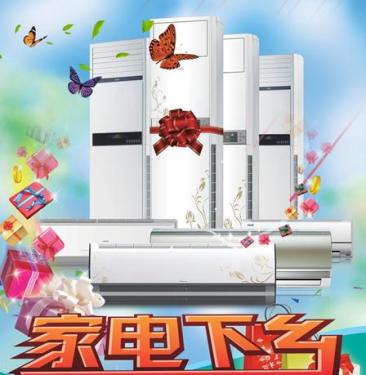Mono panel,High Quality Mono panel,Mono panel Details, Yangzhou Bright Solar Solutions Co., Ltd. Yangzhou Bright Solar Solutions Co., Ltd. , https://www.solarlights.pl All home appliances to the countryside policy will expire at the end of this month, industry sources said that in the context of home appliances to the countryside, the industry will face structural transformation this year. The most affected are the small and medium-sized household appliances. Due to relatively weak R&D, capital, and channel strength, such companies may face severe challenges after the policy is withdrawn.
All home appliances to the countryside policy will expire at the end of this month, industry sources said that in the context of home appliances to the countryside, the industry will face structural transformation this year. The most affected are the small and medium-sized household appliances. Due to relatively weak R&D, capital, and channel strength, such companies may face severe challenges after the policy is withdrawn.
Overcapacity of household appliances The latest data from the Ministry of Commerce show that in 2012, the country did not include sales of 79.913 million home appliances to rural areas in Shandong, Henan, Sichuan, and Qingdao, and achieved sales of 214.52 billion yuan.
The policy of home appliances to the countryside led to significant sales of home appliances. Statistics show that during 2009-2011, the average sales growth of major home appliances, such as color TVs, air conditioners, refrigerators, and washing machines, was maintained at more than 20%. Before the introduction of the policy, the sales growth of these products was lower than 10%. Among them, the sales growth of air conditioners in 2008 was only 0.03%, but in 2010 and 2011, the sales volume of air conditioners nationwide increased rapidly, achieving a rapid growth of 31.85% and 33.74% respectively.
However, while the home appliances to the countryside are pulling the market, there are constant controversies in the industry. At the initial stage of the implementation of the policy, the substantial increase in the sales of home appliances led to the impulse of manufacturers to expand their production capacity. Leading companies such as Haier, Midea, and Meiling have significantly increased their production capacity by building new production bases or upgrading their technological transformation projects on the basis of existing bases. In 2012, the production and sales rate of the household appliance industry fell to the lowest level in five years. From the inventory of major products, between 2010 and 2011, the year-on-year growth rate of washing machines, refrigerators, and air conditioners was more than 20%. Although inventory growth declined in 2012, it was not enough to reverse the overcapacity situation.
According to the data of the Ministry of Commerce, during the period from 2009 to 2012, the year-on-year growth in the sales volume and sales growth of home appliances to the countryside showed a trend of decline year by year. The policy stimulus effect diminishes year by year.
Zuo Yanyi, the brand director of China Yikang, said that the policy of home appliances to the countryside has reached out to help in the case of weak domestic demand and can promote the sales of home appliances and improve the operation of home appliance companies in the short term.
SMEs are facing test of the world The future home appliance industry analyst Wang Haixia told the China Securities Journal that under the background of the policy's decision to withdraw, 2013 will be the year for the home appliance industry to enter a structural transformation. On the one hand, enterprises need to absorb excess production capacity; on the other hand, the industry needs to re-enter the track of market-led growth in the industry through product transformation and upgrading.
Wang Haixia believes that the withdrawal of policies will have little impact on large household appliance companies. Due to abundant funds, advanced technology, and diversified channels, large-scale home appliance companies can go their own way to the countryside and continue to sink their sales focus in the 3rd and 4th markets. However, the situation faced by small and medium-sized home appliance companies is severe. In recent years, some small and medium-sized home appliance companies have relied on subsidy policies, and they lack the financial strength and have no incentive to develop new products. After escaping from the umbrella of policies, small-scale enterprises with difficult operations may face the situation that they are eliminated or merged by the market.
Zuo Yanji told the China Securities Journal that in the fierce market competition, the industry's concentration will continue to increase. Small and medium-sized home appliance companies may soon be eroded if they do not have their own unique characteristics and do not have unique business channels in their products and channels.
It is understood that in the end of the home appliances to the countryside policy, in 2009 the launch of home appliances trade-in, car trade-in and car to the countryside, have been in the end of 2010, the end of 2011 gradually expired. During the financial crisis, a series of policies with financial subsidies to promote the consumption of large commodities will come to an end.